The Moroccan journalist arrested for a non-existent abortion
Hajar Raissouni claims charges by the north African kingdom were used to prosecute her for reporting on the nation’s authorities, writes Aida Alami
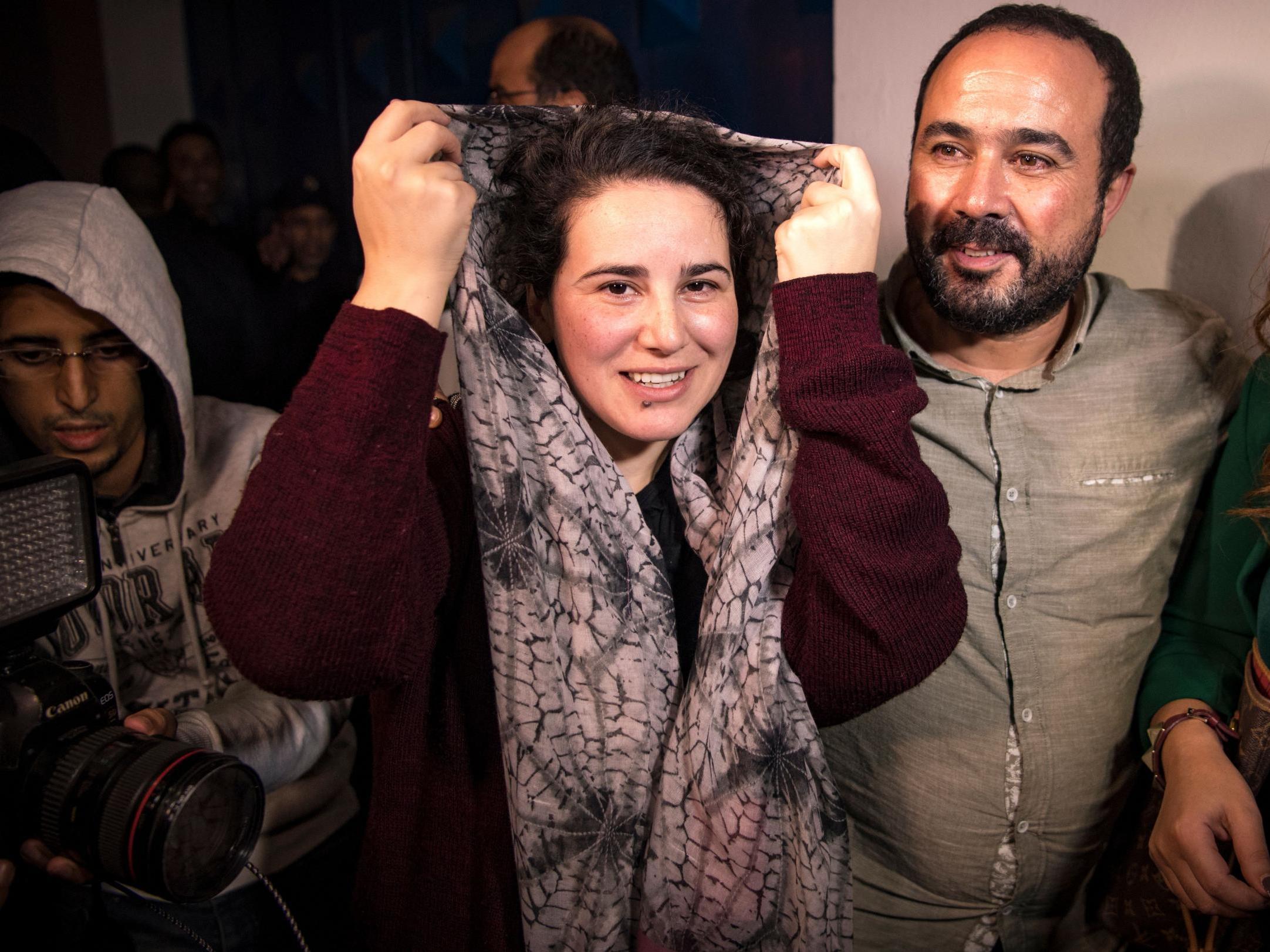
When Hajar Raissouni, an investigative journalist with one of Morocco’s only independent news outlets, went to her doctor’s office in August this year seeking treatment for a vaginal haemorrhage, she was not planning on becoming the centre of a national discussion on press freedom, abortion rights and what critics say is the nation’s antiquated penal code.
But on 31 August, minutes after receiving the treatment, Raissouni and her fiancé, Rifaat al-Amin, were arrested – just two weeks before their wedding day. At first, she thought they were being robbed.
But she quickly realised that the six men in plain clothes holding video cameras were police officers and that she was being arrested because of her critical reporting on Moroccan authorities.
The couple were eventually charged with sex outside of marriage and having an abortion, both crimes in the north African kingdom, though abortion laws are rarely enforced. Raissouni, who strongly denies having had an abortion, says she was forced by Moroccan authorities to undergo a pelvic examination that aggravated the haemorrhage, provoking renewed bleeding.
Her physician Dr Jamal Belkeziz, a second doctor and an office assistant were also arrested and charged with violating abortion laws.
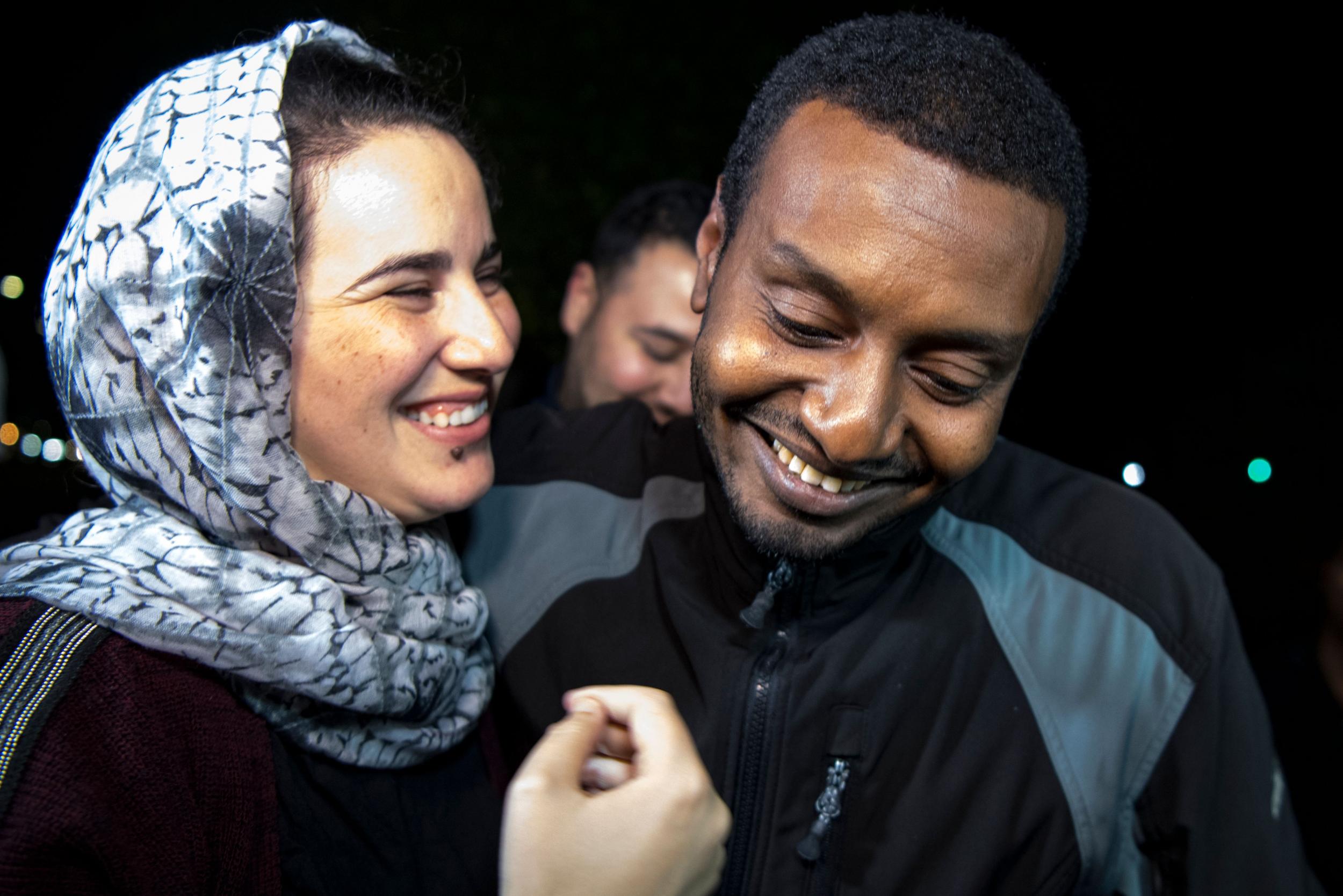
Their trial in September caused a sensation in Morocco, drawing crowds of supporters and protesters and unleashing a torrent of criticism from press freedom and abortion rights advocates, among others. The court’s decision to convict all five and sentence Raissouni and al-Amin, now her husband, to a year in prison provoked another uproar that was quelled only after the issue of a royal pardon for all defendants on 16 October
“We’re relieved that Hajar and her co-defendants are free, but they should have never been arrested in the first place,” said Ahmed Benchemsi, Middle East and north Africa communications director at Human Rights Watch, after the pardon. “A silver lining for this deplorable incident is that a debate has been opened about archaic laws in Morocco, and now there’s a growing demand to repeal laws criminalising non-marital sex.”
A silver lining for this deplorable incident is that a debate has been opened about archaic laws in Morocco, and now there’s a growing demand to repeal laws criminalising non-marital sex
Naturally reserved, Raissouni is still dealing with the consequences of having her private life discussed for weeks in the national and international news media. But the case has thrust her reluctantly into the headlines and onto a list of the top 10 cases of injustice against journalists, and she is determined to use her newfound celebrity to push for a political system with independent institutions and a free press.
“I was not just the victim of unjust laws, but of unjust authorities,” she says. “My case wasn’t really about a non-existent abortion, but was the result of the arbitrary politics of the state.”
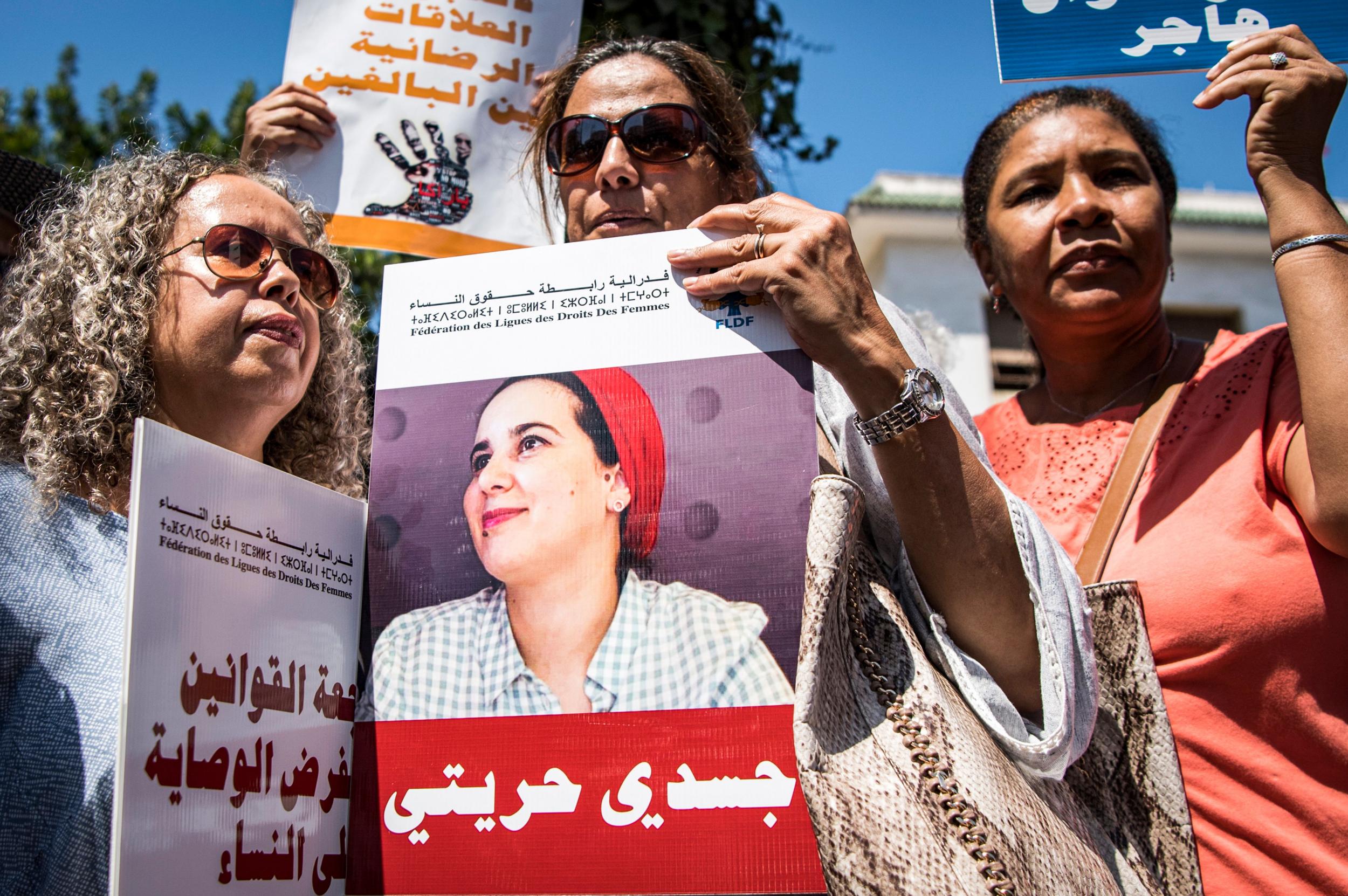
As terrible as this experience may have been, it seems fair to say that Raissouni seemed almost bound to fall foul of Moroccan authorities at some point.
She was born into a prominent family of landowners, warriors, intellectuals and political dissidents in northern Morocco, and was urged from an early age to hold those in power accountable in a country where injustice largely prevails.
She is also a niece of two prominent voices of dissent in Morocco: Soulaimane Raissouni, editor of Akhbar Al-Yaoum, one of the few independent news outlets in Morocco, where she had been working; and Ahmed Raissouni, an Islamist and vocal critic of the state.
My case wasn’t really about a nonexistent abortion, but it was the result of the arbitrary politics of the state
Her fondest memories are of listening to her grandfather recount the exploits of her ancestors who fought some of the country’s biggest wars. When one of her history teachers called her ancestors “traitors” in high school for having opposed the country’s becoming a joint French-Spanish protectorate in the early 20th century, she took it as a badge of honour.
A great uncle, Moulay Ahmed Raissouni, was the chief actor in those events. A polarising figure, often described as both a patriot and a bandit, he touched off an international diplomatic dispute in 1904 by kidnapping a Greek-American playboy, Ion Perdicaris, and his son, demanding a $70,000 ransom. President Theodore Roosevelt, looking for an issue to jump-start his campaign for a second term, promptly dispatched several warships to the coast of Morocco. (It all ended amicably enough, with Raissouni getting the ransom and Roosevelt winning re-election.)
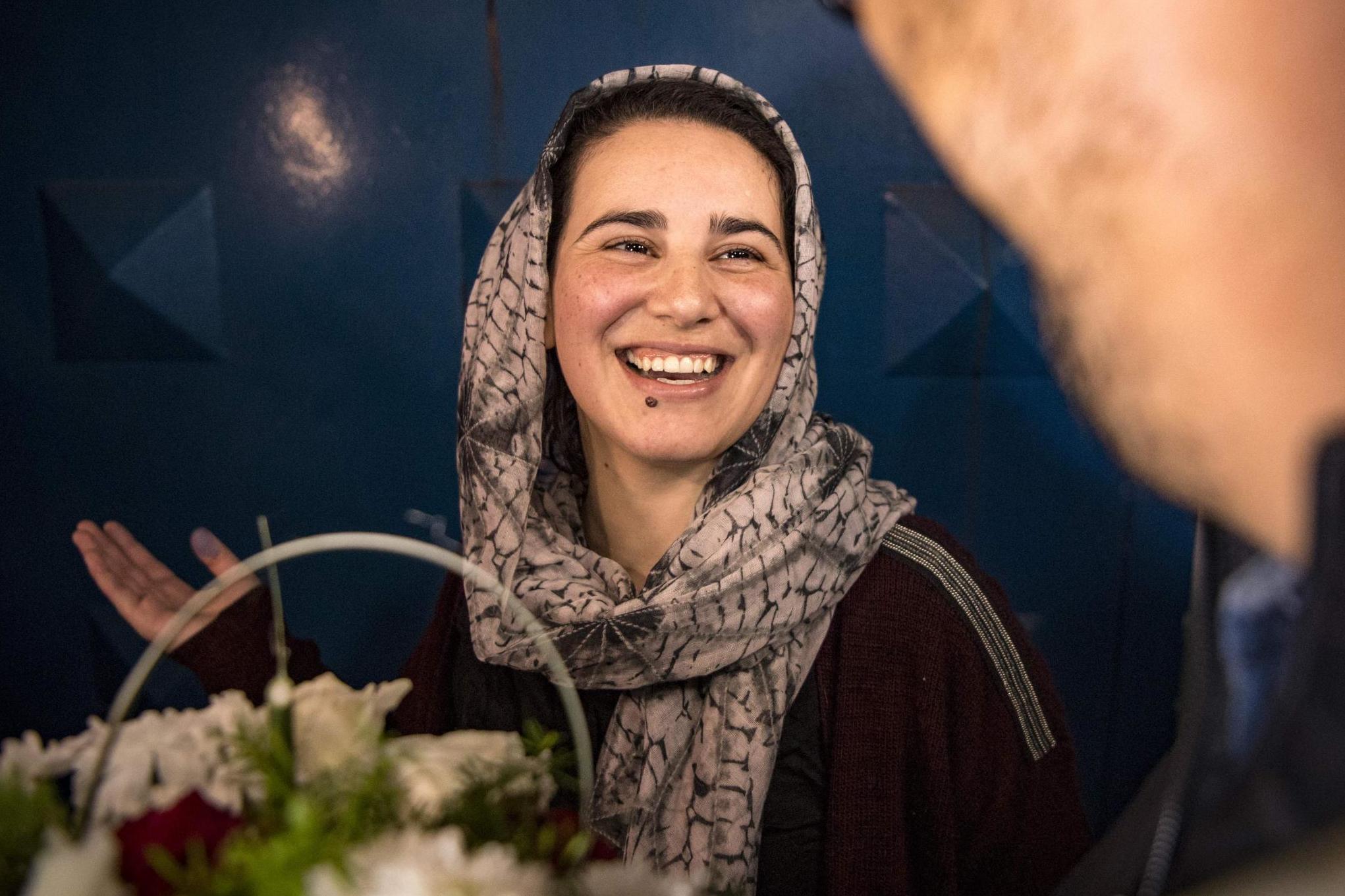
But the family has occasionally paid a grim price for its resistance to the powerful. Just two years ago, Hajar Raissouni’s father was stoned to death in a dispute with other landowners who were trying to stop him from working some of his fields.
The urge to write and express herself came to Raissouni at an early age. When she was just nine, she wrote an article titled “Peace”, and when she was 12, another one titled “Freedom”. She excelled in school and eventually moved to the capital, Rabat, for college.
While studying to become an engineer to please her father, she secretly pursued a career in journalism, writing under a pen name and giving maths lessons to support her writing. She started contributing to Akhbar Al-Yaoum in 2016 after stints with other newspapers. She now writes about human rights and politics and in March received an award for her coverage on illegal immigration.
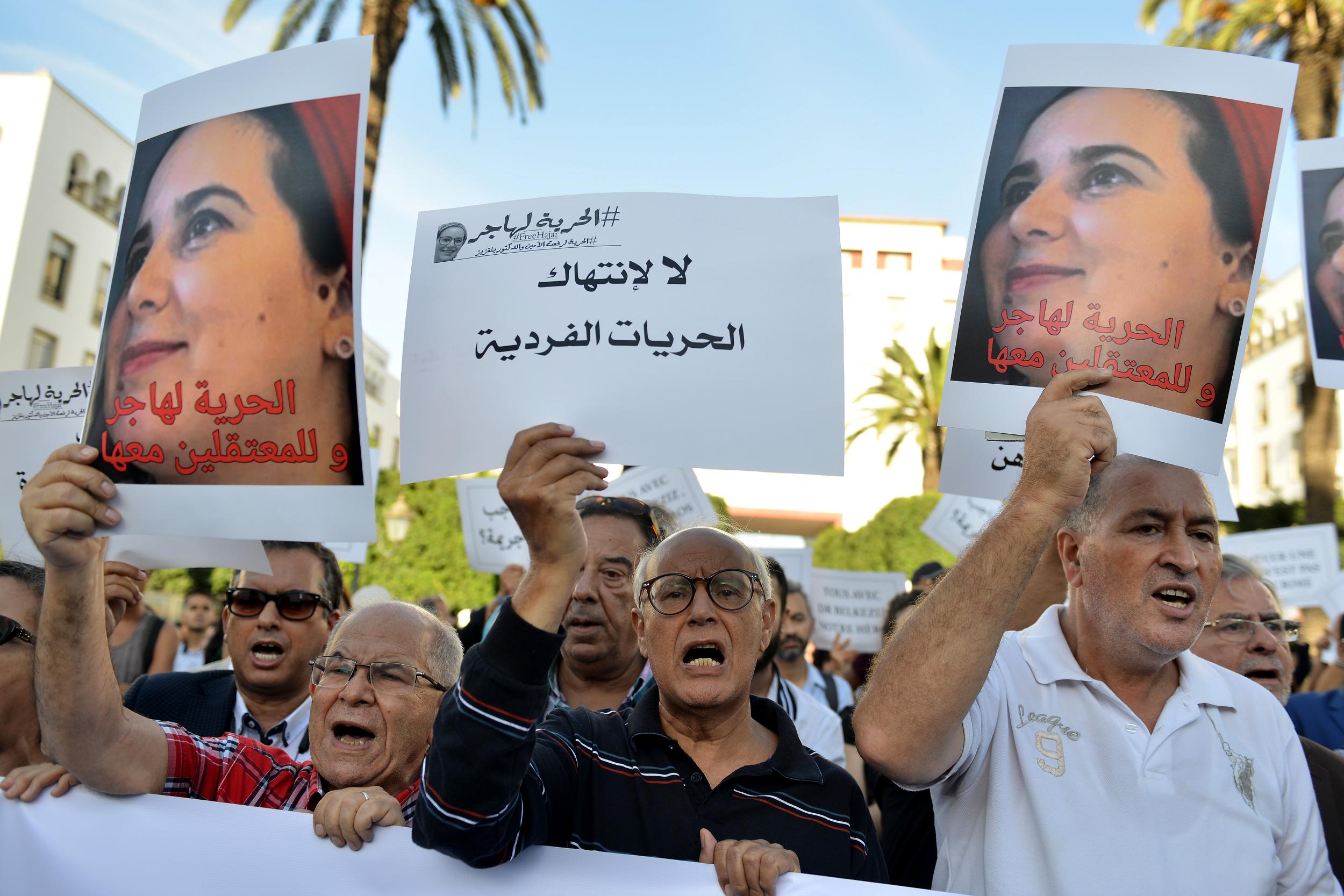
The newspaper, with fewer than a dozen reporters, has been in existence for only a decade, but its journalists have been dragged into court on a regular basis. Last year, the paper’s founder and publisher, Taoufik Bouachrine, was sentenced to 12 years in prison on sexual assault charges, in a prosecution that the United Nations Working Group on Arbitrary Detention concluded was politically motivated. The sentence was increased to 15 years following an appeal last month.
Raissouni says she is not sure she is ready to resume her career, preferring to take time to recuperate from the ordeal and the aftermath of the intense exposure. She still retains the signature composure she demonstrated throughout the trial: relaxed, funny and sarcastic, while never showing fear. And she says she is still determined to denounce human rights abuses – perhaps even more so.
She says she has emerged from the experience feeling closer to her husband than ever. She met al-Amin – who fled Sudan for his criticism of the since-deposed president, Omar al-Bashir – on the campus of a university in Rabat only a few months ago, and they were drawn together by their common passion for politics and human rights.
They used to argue about human rights in Morocco, which he considered far more respectful of them and justice than his home country. He sees things differently now, she says, so they have moved on to arguing over a Gandhi quote that hangs on their wall in the living room next to photos of Nelson Mandela. “Victory attained by violence,” it reads, “is tantamount to a defeat for it is momentary.”
“We disagree about Gandhi,” she says. “I am not saying that violence should be the response to violence. But you can’t smile and write articles. You have to take to the streets and protest.”
And they have one other serious point of contention in Oum Kalthoum, one of the Arab world’s most beloved singers.
“Now that you went to jail with me, you need to love what I love,” Raissouni, who plays the oud and the violin, tells her husband laughing. “So you need to listen to Oum Kalthoum.”
© New York Times
Join our commenting forum
Join thought-provoking conversations, follow other Independent readers and see their replies
Comments
Bookmark popover
Removed from bookmarks